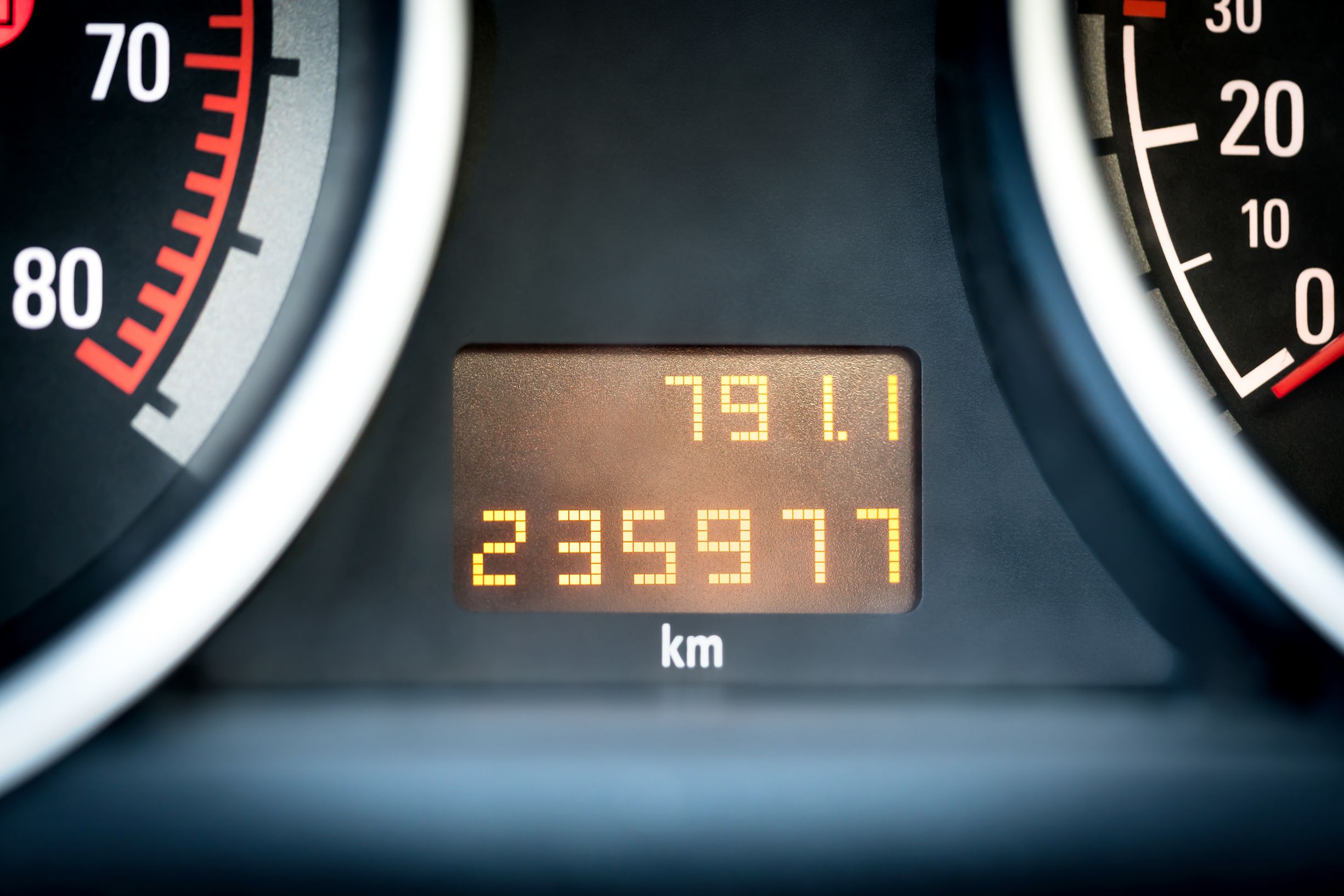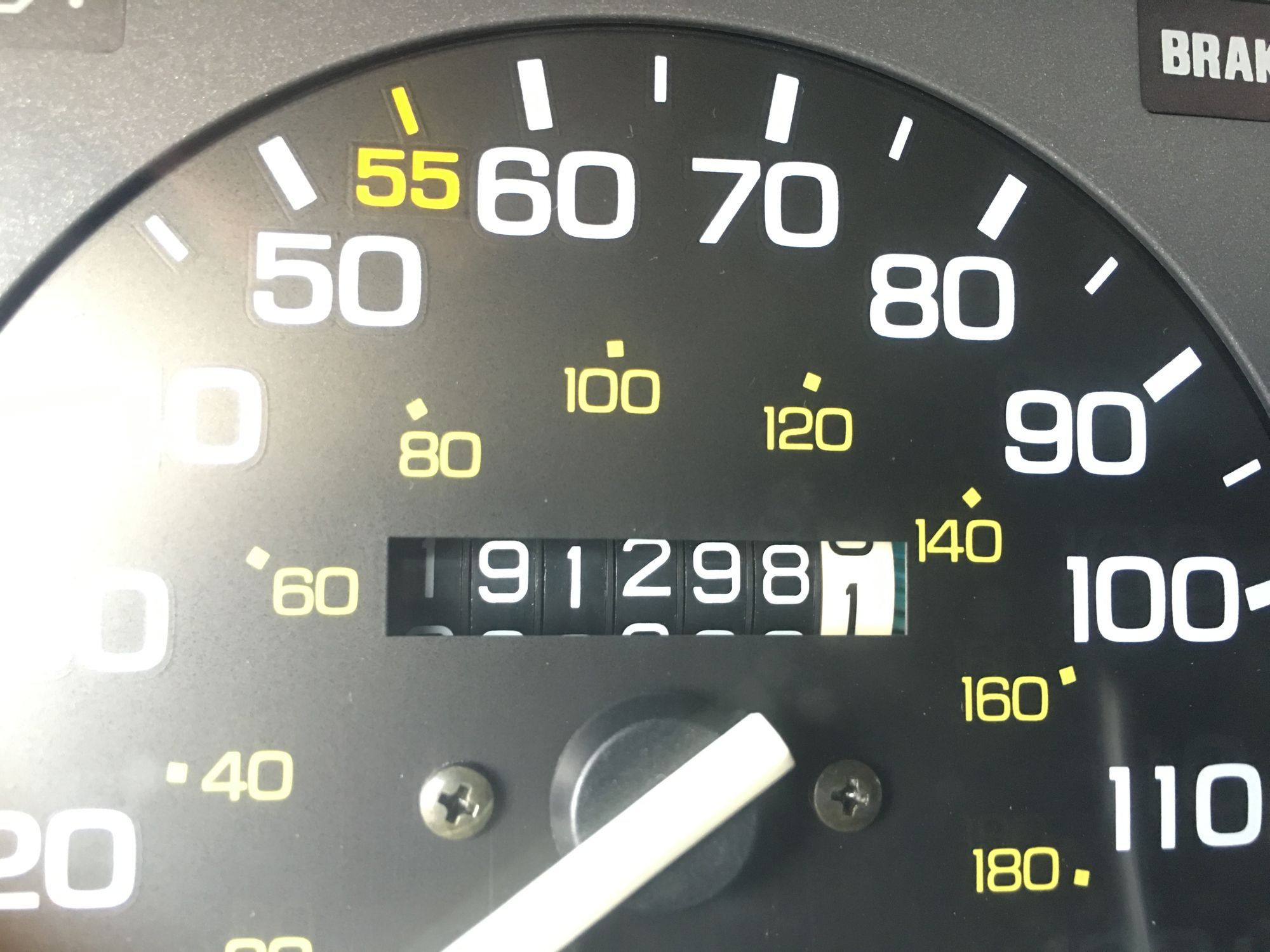National Mileage Register: What You Need to Know
When you're buying a used car, you want to be sure you're getting what you pay for. One of the biggest worries is "clocking"—when a car's mileage has been illegally wound back. This is where the National Mileage Register comes in. Our guide explains what it is, why it's so important for spotting mileage discrepancies, and how it helps you make a smarter, safer purchase.
The Cazoo editorial team
Published on 28 August 2025 | 3 mins read

When buying a car, knowing as much as possible about its history is crucial. One key aspect to investigate is the car’s mileage, and that’s where the National Mileage Register (NMR) comes in. It’s your secret weapon for ensuring accuracy and avoiding scams like clocking. But what exactly is the NMR, and how can it protect you? Here’s a clear and approachable guide to everything you need to know.
What Is the National Mileage Register?
The National Mileage Register (NMR), managed by HPI (Hire Purchase Investigation), is a database that gathers and stores mileage records for vehicles in the UK. Its primary goal is to tackle mileage fraud—commonly known as "clocking"—which involves tampering with a vehicle’s odometer to show fewer miles than it’s actually travelled.
This is a critical service for anyone buying a used car, as clocking can artificially inflate a car’s value while hiding potential maintenance issues tied to its real mileage. By consulting the NMR, you can compare a car’s listed mileage to its records and flag any discrepancies.

How Does the National Mileage Register Work?
The NMR collects mileage data from a variety of trusted sources, including:
- The DVLA (Driver and Vehicle Licensing Agency)
- MOT records
- Car dealerships and manufacturers
- Leasing companies
- Individual car owners
When you request a mileage check, the database compares the car’s odometer reading with its historical data. Any inconsistencies—such as sudden reductions in mileage—are flagged, helping buyers identify potential issues before completing a purchase.
Why Is the NMR Important for Car Buyers?
1. Identifying Mileage Tampering
No buyer wants to pay over the odds for a car that's hiding its true wear and tear. NMR checks can expose clocking early, ensuring you don’t fall victim to inflated prices or risk future breakdowns caused by undisclosed damage.
2. Building Buyer Confidence
Knowing a car’s mileage has been independently verified gives you extra peace of mind when making a decision. It’s not just about protecting your wallet—it’s about trusting that the car you’re purchasing is exactly what it claims to be.
3. Supporting Negotiations
Mileage discrepancies or irregularities in the car’s records can serve as valuable leverage during price negotiations. If something feels off, you’re well within your rights to question the seller’s asking price or walk away entirely.
What Does "NMR" Mean on a History Check?
If you’ve conducted a detailed history check through a trusted provider like HPI, you may notice mileage information listed as "NMR" in the report. This simply means the data has been retrieved from the National Mileage Register, with no suspicious activity detected unless otherwise flagged.
If a discrepancy is mentioned, approach the seller for clarification. Genuine mistakes, such as clerical errors made during an MOT, can happen, but a seller should be able to provide evidence to clear up any confusion.

Spotting Mileage Discrepancies
Discrepancies in a vehicle’s mileage occur when the odometer reading doesn’t match official records. This could point to accidental errors—or deliberate tampering. Here are a few ways to spot inconsistencies:
- Compare the car’s odometer reading to its MOT records, which you can access online for free via National Mileage Register.
- Examine the car’s service history. Mileage should follow a logical progression—be wary of drastic drops or unusually high jumps between records.
- Look at signs of wear and tear that don’t match the car’s claimed mileage. For instance, a heavily worn steering wheel or pedals on a low-mileage car might raise eyebrows.
Can You Check Car Mileage Online?
Yes, absolutely! Here are two simple ways to run an online mileage check:
1. Free MOT History Check
Visit the government’s official National Mileage Register to find out what mileage was recorded during each past MOT. This is an easy starting point for spotting any irregularities in mileage progression.
2. Paid History Check via HPI
For a more detailed overview, services like HPI checks offer comprehensive reports that pull data directly from the NMR. These include not only mileage information but also insights into outstanding finance, write-offs, and whether the car has been stolen.
What If the NMR Flags an Issue?
If there’s a flagged discrepancy in the car’s mileage, don’t panic—but do proceed with caution. Take these steps to protect yourself:
- Ask for Documentation
Request any available Service History, MOT records, or receipts that verify the car’s mileage progression.
2. Contact the NMR
If you suspect an error in their records, you can submit evidence (such as a correction in the logbook) for review. While you can’t directly edit the NMR, HPI can update their database once proof is verified.
3. Walk Away If Necessary
If discrepancies remain unresolved or the seller cannot provide sufficient answers, it’s better to walk away. There’s no shortage of trustworthy cars on the market!
Can You Sell a Car with a Mileage Discrepancy?
Under UK law, it’s not illegal to sell a car with a mileage discrepancy—but transparency is essential. Sellers must disclose accurate information to buyers. Failure to do so constitutes fraud, and buyers can take legal action if they later discover they’ve been misled.
Honest documentation—such as an explanation of mileage issues and proof of any corrections—goes a long way in building trust when selling a car.
The National Mileage Register might not be the first thing that comes to mind when shopping for a car, but it’s a powerful tool in safeguarding your purchase. By using this service, you’re giving yourself the confidence to buy wisely and avoid common pitfalls like clocking.